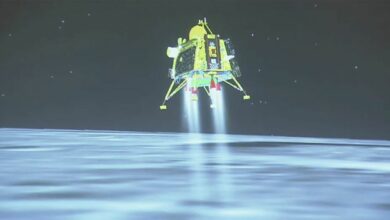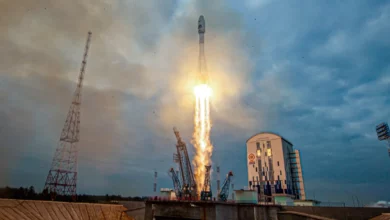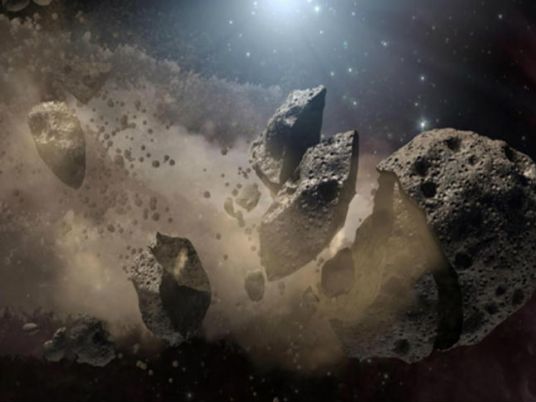
Mohamed Shawkat Odeh, director of the International Astronomy Center, said on Wednesday that speculations of a spacecraft falling on Earth on Friday at noon or Saturday at seven in the morning GMT are but preliminary estimates, and that more accurate information are attainable the more the spaceship approaches Earth's atmosphere.
“Usually, we do not know exactly where and when a spaceship falls except four hours earlier,” Odeh explained, adding that the spacecraft would not fall in one piece because it would heat up while entering the Earth's atmosphere, burning large parts of it. “It is designed to burn up in the atmosphere.”
“Maybe parts, as small as a football, may fall,” he said. “It has happened before, but could be dangerous if they hit a person or a building.”
He said the center will announce first-hand updates on Twitter and on its website, and will warn the areas where the spacecraft would fall.
The spacecraft “Progress M-27M” was launched last Tuesday by the Russian Space Agency from Kazakhstan on the Russian rocket “Soyuz 2-1A” to head to the International Space Station, carrying 2.5 tons of supplies, water and fuel. It soon, however, began to malfunction and lost contact, causing the Russian Space Agency to announce it would fall back to Earth in a few days.
Preliminary examination revealed that the malfunction began immediately after the third separation from the rocket, where the spacecraft began to rotate around itself once every five seconds.
The spacecraft is seven meters long, weighed seven tons at launch and is now traveling at a speed of 26,000 km per hour.
Edited translation from Al-Masry Al-Youm



